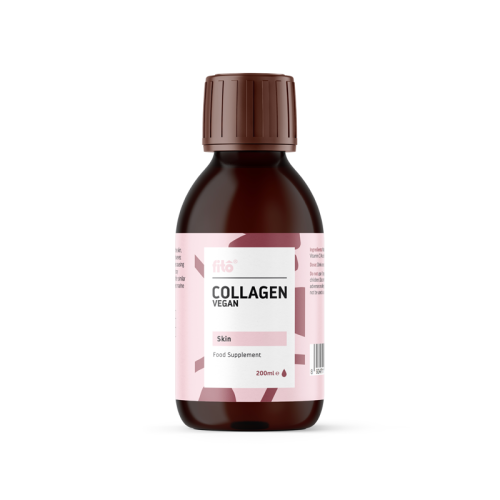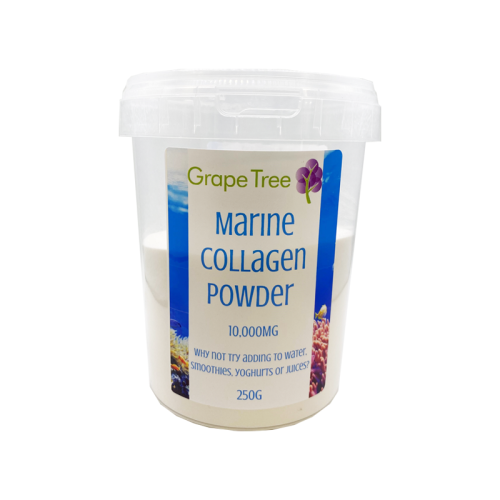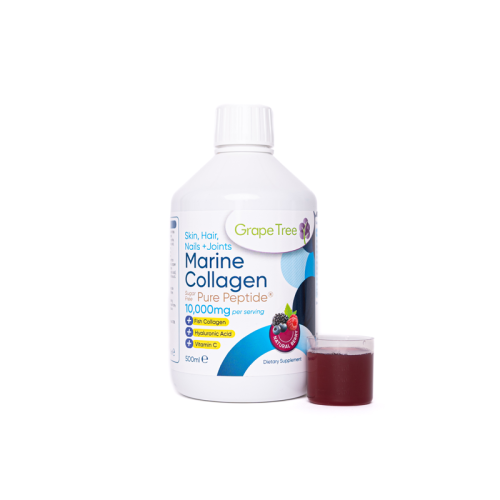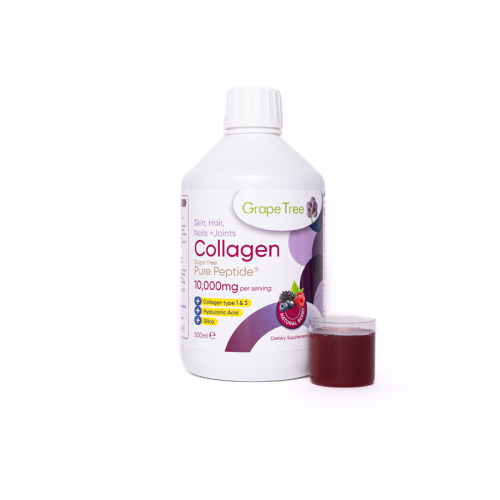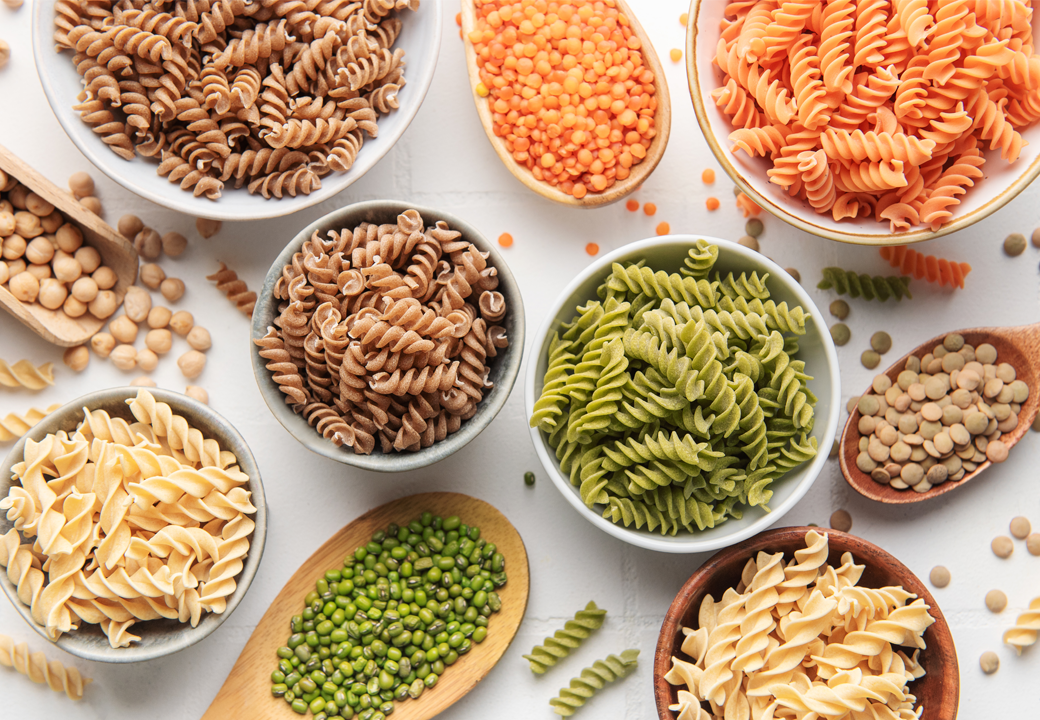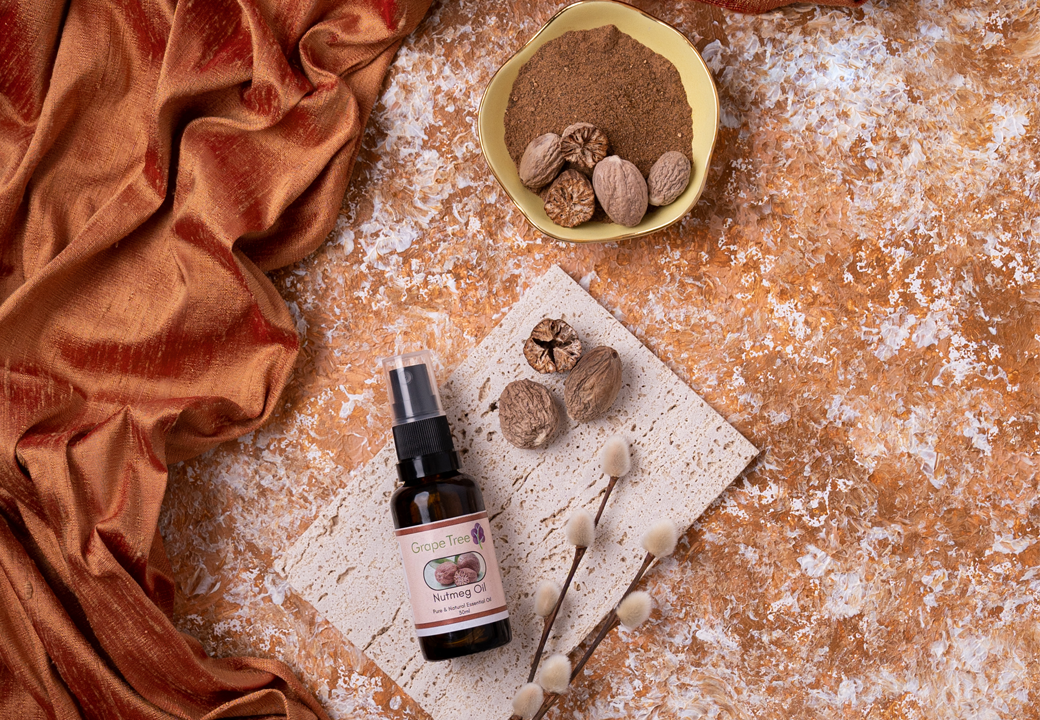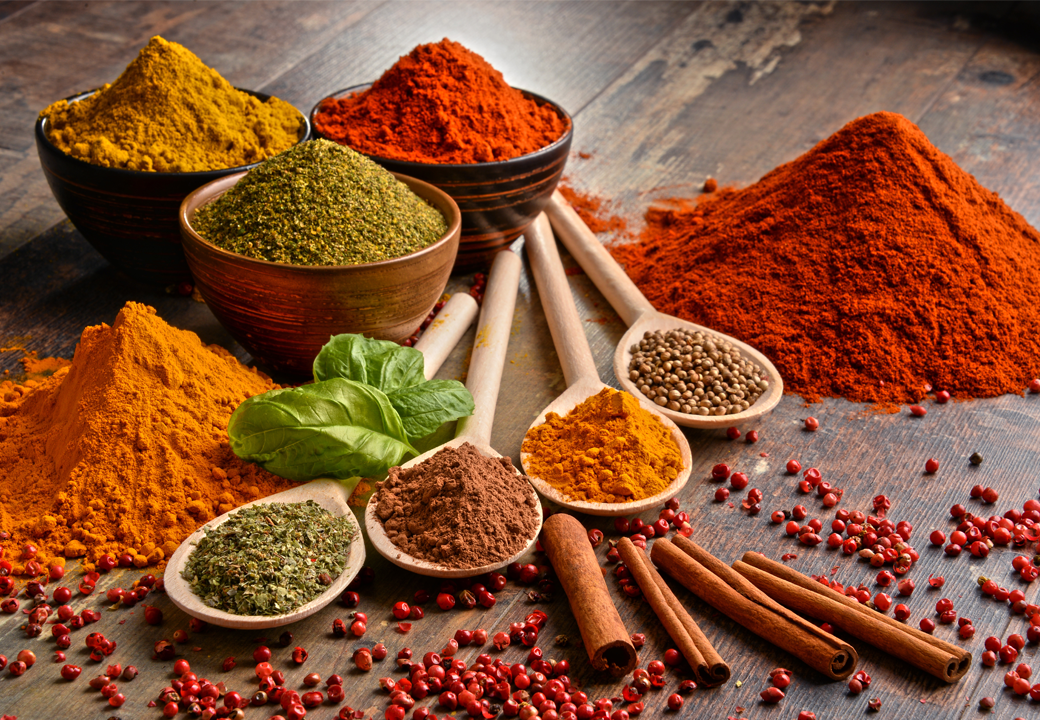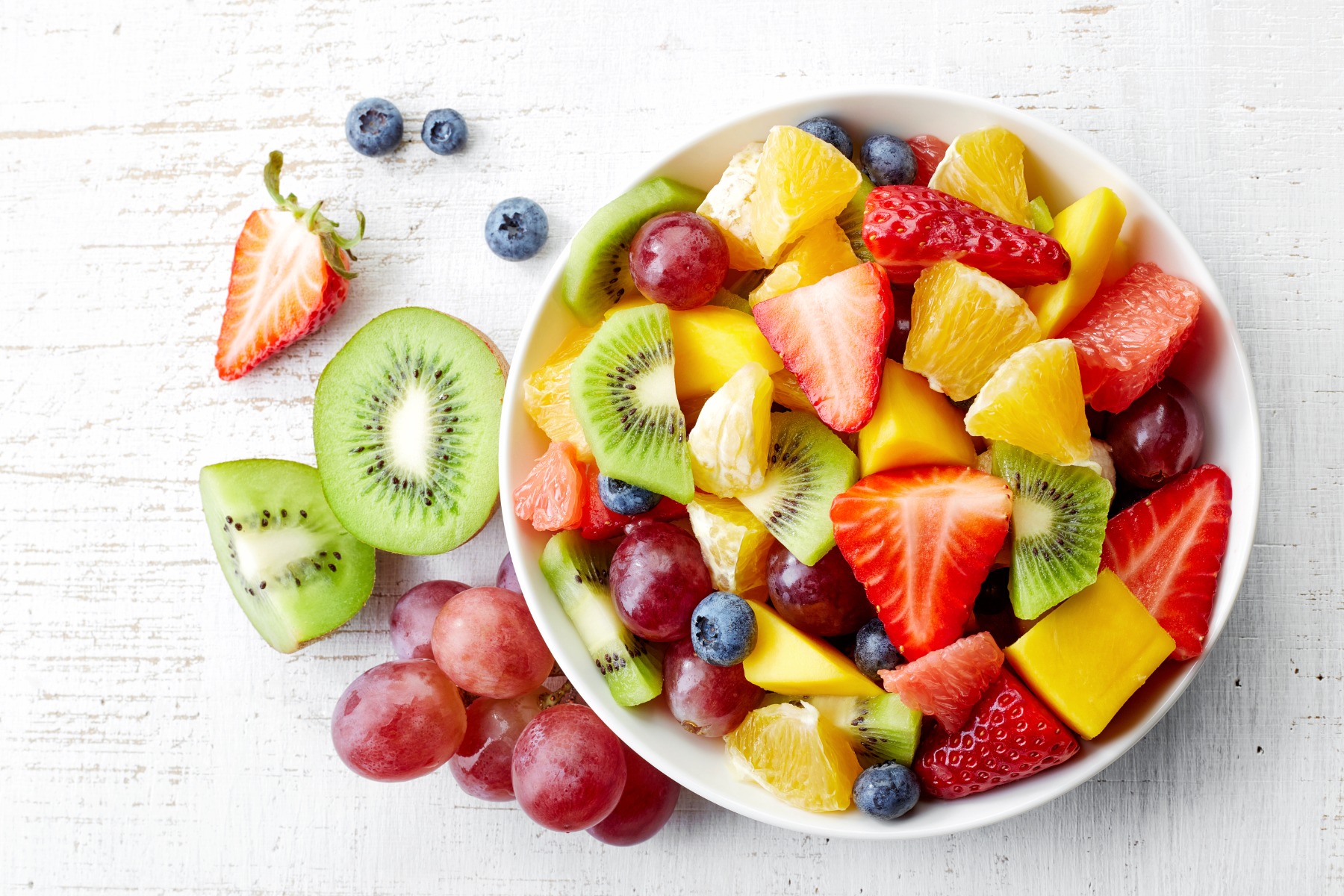

Photo Credit: "© [baibaz] / Adobe Stock
If there’s one word flying around the health and wellness community, it’s collagen. But what is it, what does it do, and can you get more? And if you don’t consume animal products, is it possible to get collagen from plants alone?
In this article, we break down why you need collagen, its amazing benefits and the best vegan collagen for you.
What is Vegan Collagen?
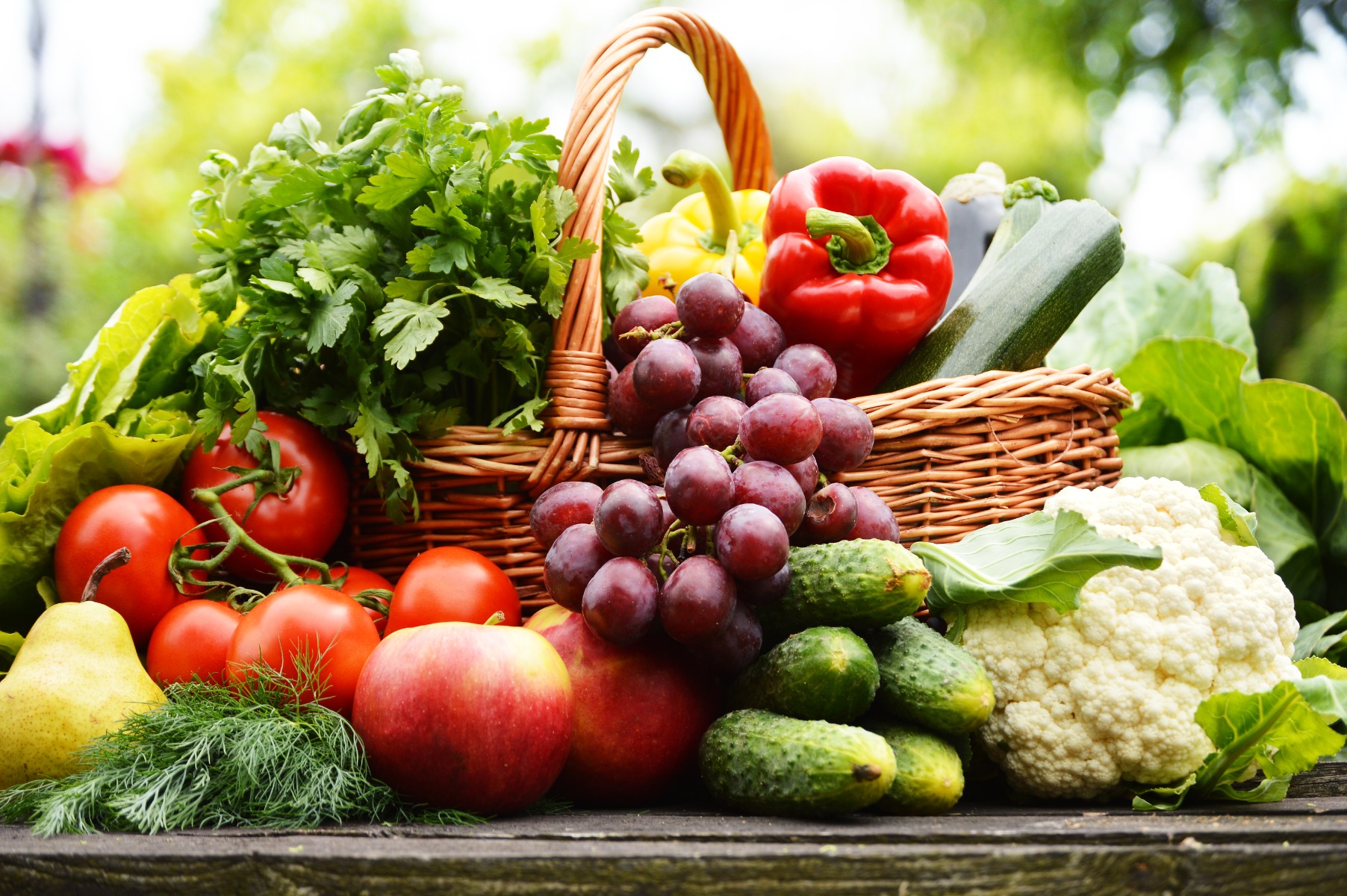

Photo Credit: "© [monticellllo] / Adobe Stock
Collagen is the most abundant protein in your body, giving your cells elasticity and strength. This helps with stretchy tendons, supple skin, strong hair and durable muscles. You naturally produce collagen, but from the age of 25, levels start to decline. You begin experiencing fine lines and wrinkles, thinner hair and injure your muscles more easily.
Vegan collagen comes from amino acids found in plant-based foods, such as vegetables, fruit, nuts and seeds. Amino acids are the building blocks for collagen. In short, without amino acids, your body cannot produce collagen. When you age, you need to replenish the decline in collagen by feeding your body extra amino acids.
What’s the Difference Between Animal Collagen and Vegan Collagen?
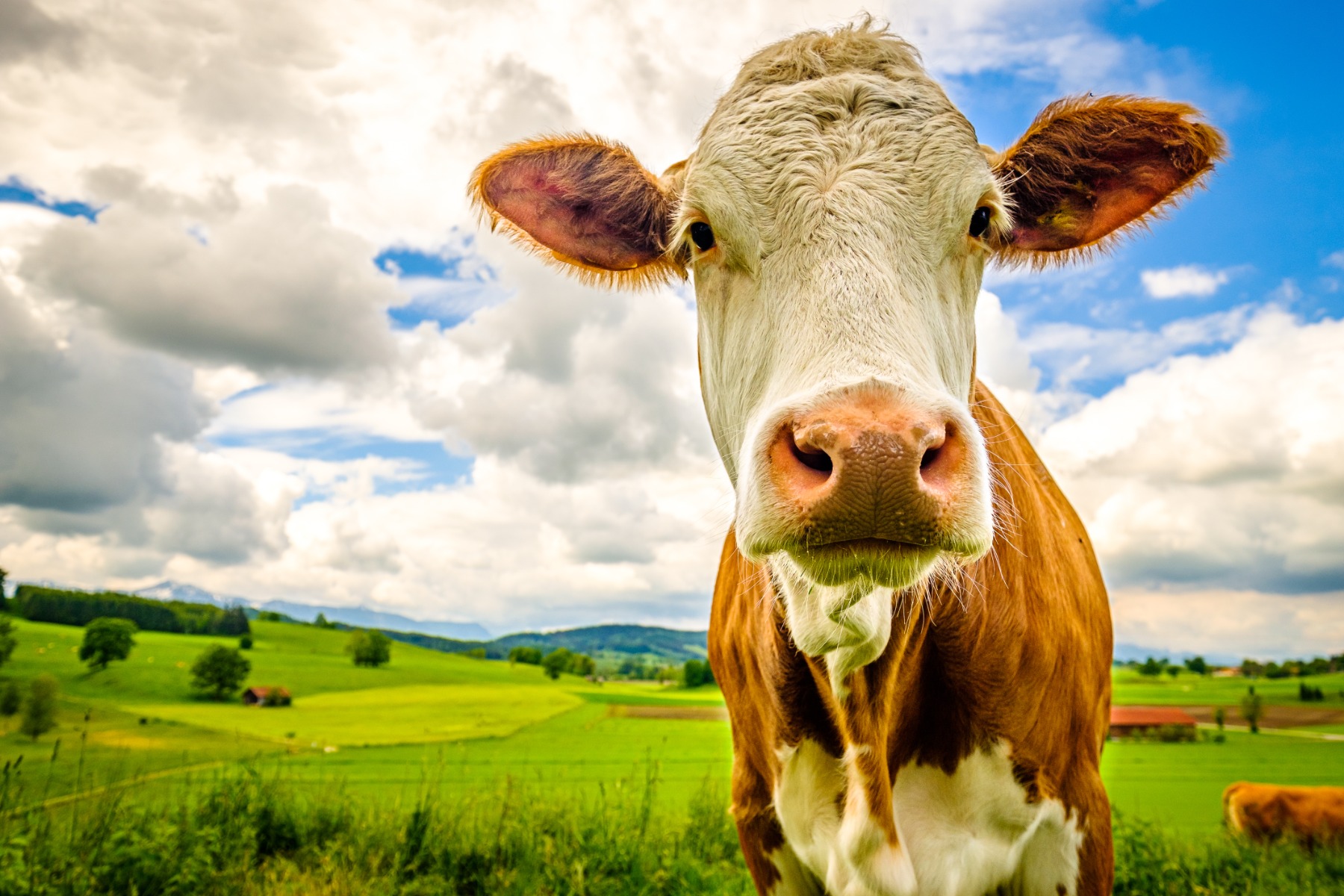

Photo Credit: "© [fottoo] / Adobe Stock
Animal collagen comes from the tendons and muscles of bovines (cows) and bones and scales of marine life. Animal collagen doesn’t contain many amino acids. Instead, the collagen comes ‘pre-built’ and ready for your body to absorb.
However, it’s essential to note that animal collagen, such as bovine collagen, and human collagen are not identical. So, you can’t absorb 100% of it, but it’s still beneficial.
Are Vegan and Vegetarian Collagen the Same?
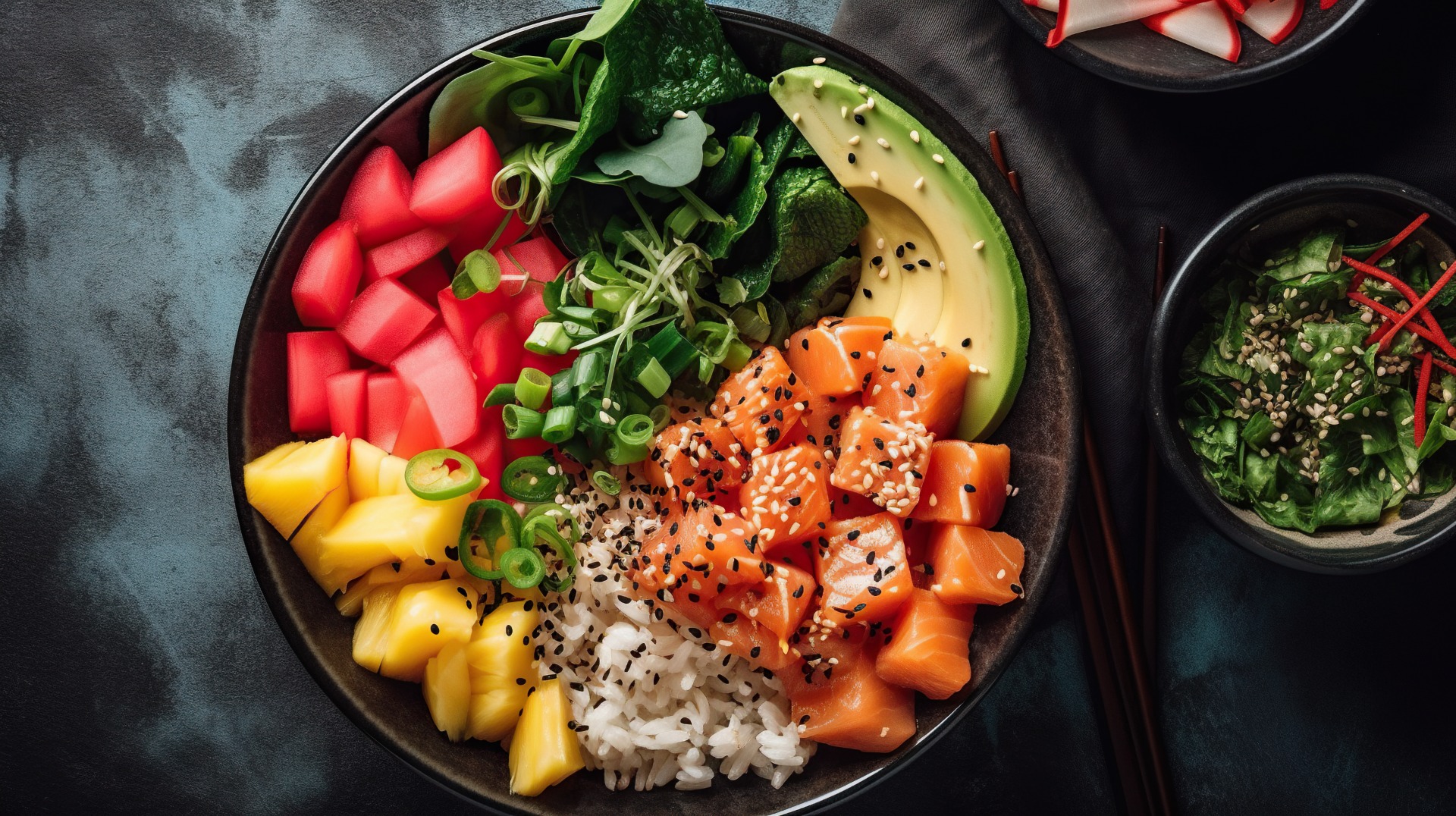

Photo Credit: "© [LAYHONG] / Adobe Stock
Vegan and vegetarian collagen are not the same, although they do overlap. Vegetarian collagen sources don’t just come from plants. You can find it in animal products such as cheese and yoghurt. If marine life is part of your diet, a source of collagen for vegetarians includes fish such as salmon and tuna.
You can get collagen tablets for vegetarians with marine collagen. Alternatively, opt for vegan collagen or eat veggie collagen through whole foods—for example, vegetables, fruit, nuts and seeds.
What Does Vegan Collagen Do?
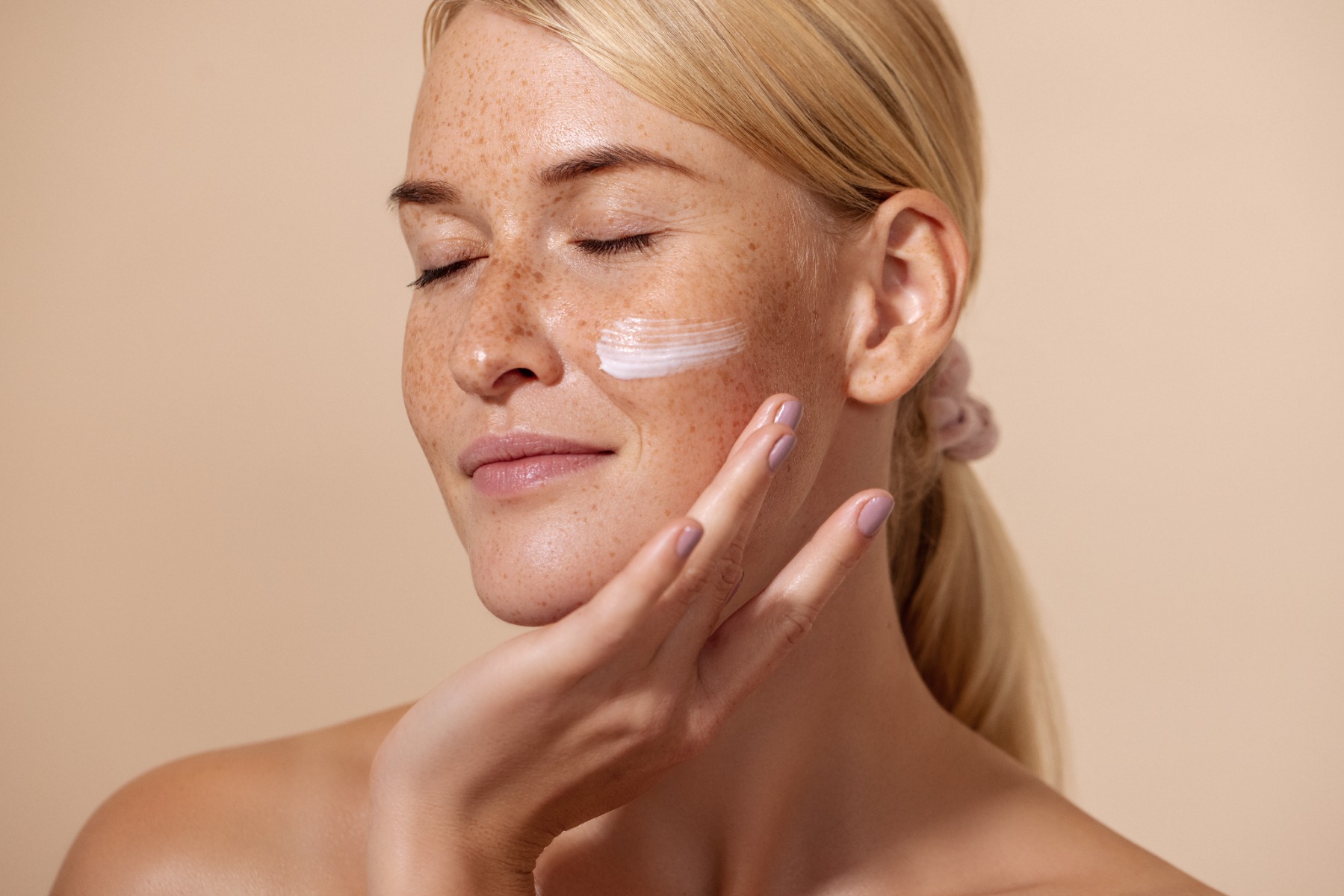

Photo Credit: "© [Artem Varnitsin] / Adobe Stock
Vegan collagen is incredibly beneficial for beauty and health purposes, so it’s a good idea to supplement collagen as you age. However, there are many other advantages of opting for vegan collagen, as it does a lot for your body.
Contains Essential Amino Acids
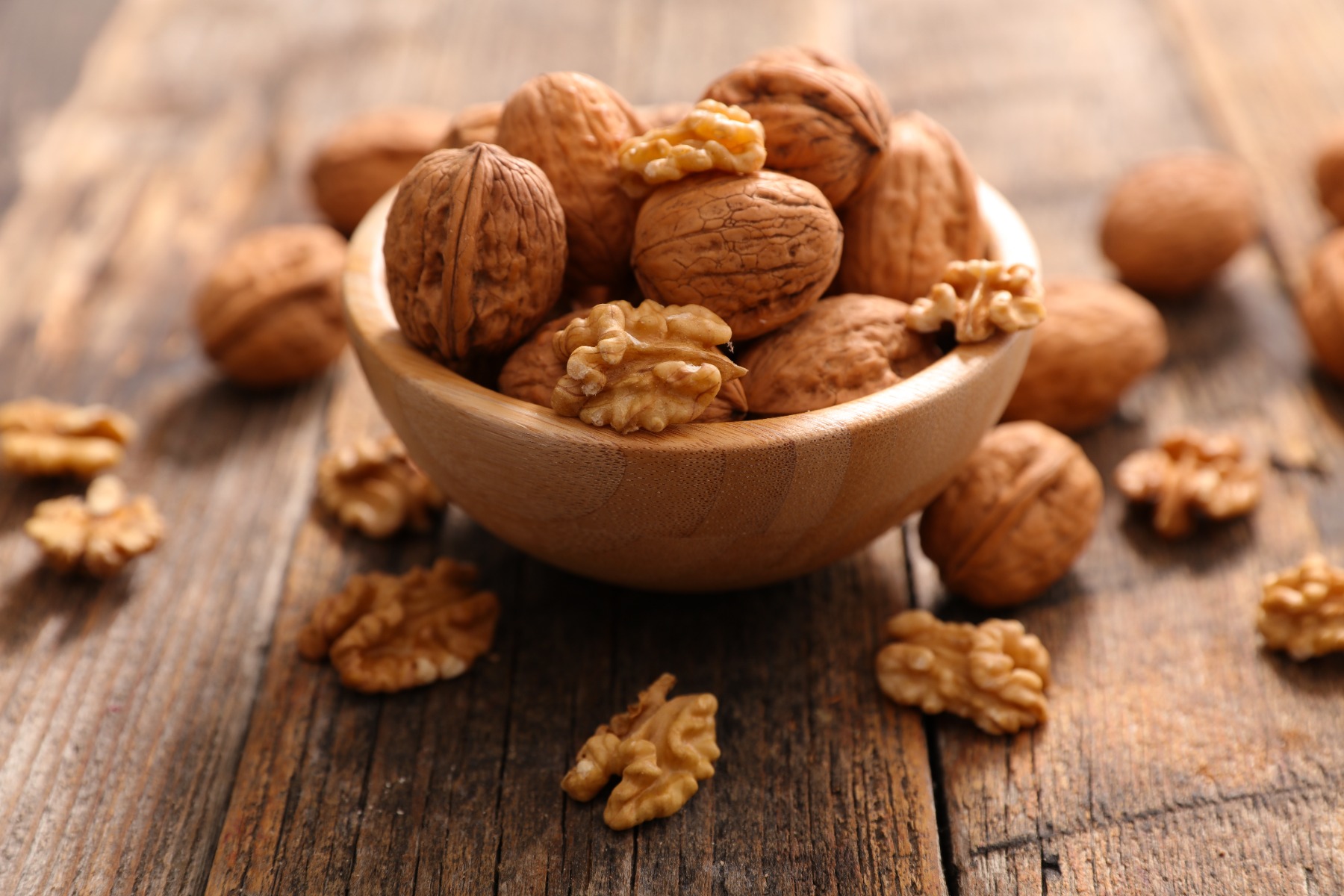

Photo Credit: "© [https://m.studio/] / Adobe Stock
Amino acids are vital for collagen synthesis because they’re like Lego building blocks. You need the acids to construct the ‘Lego’ collagen model.
Animal collagen contains an extremely low profile of amino acids, and the body can only absorb so much. So, while taking a bovine collagen supplement is helpful, supplying your body with plant-based amino acids is just as crucial. In a nutshell, vegan collagen is critical for both vegan and non-vegan lifestyles.
Environmentally-Friendly and Sustainable


Photo Credit: "© [lovelyday12] / Adobe Stock
A definite bonus of taking vegan plant-based collagen is it’s environmentally friendly and sustainable. You can obtain amino acids for collagen production from an array of nuts, seeds, fruits and veggies. This is excellent news for all animal lovers. On average, growing plants also takes up fewer resources than animals, contributing to the Earth’s health.
Contains Vitamin C
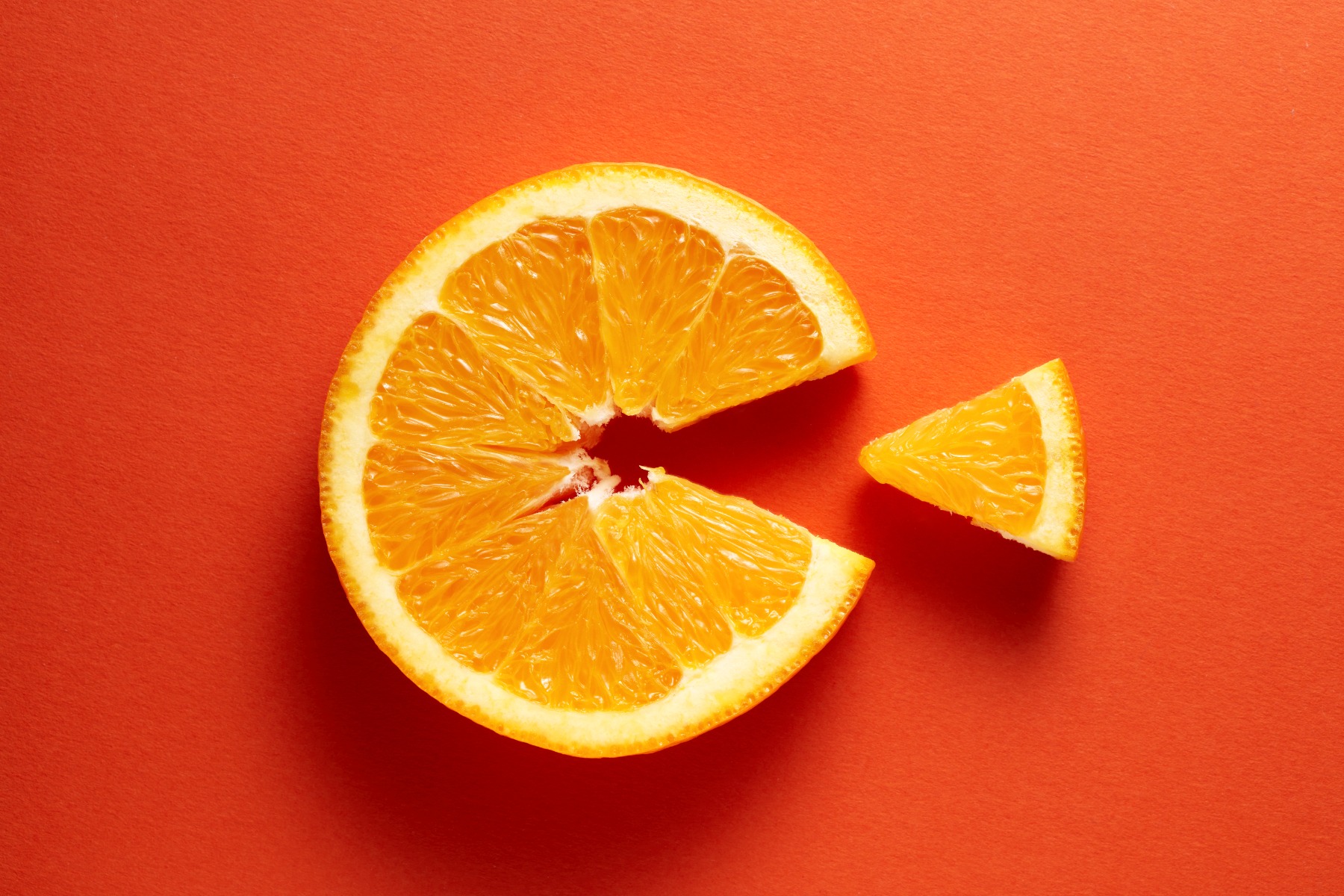

Photo Credit: "© [Cagkan] / Adobe Stock
Vitamin C is another ‘ingredient’ or building block integral to creating collagen. It’s excellent for helping skin glow and keeping your tendons supple.
You can get plenty of vitamin C by eating an array of plant-based foods. Some of the best include citrus fruits like grapefruit, kiwi and orange. You can also increase your vitamin C levels with dark leafy greens and berries or by taking a vegan collagen supplement.
Bursting With Fibre
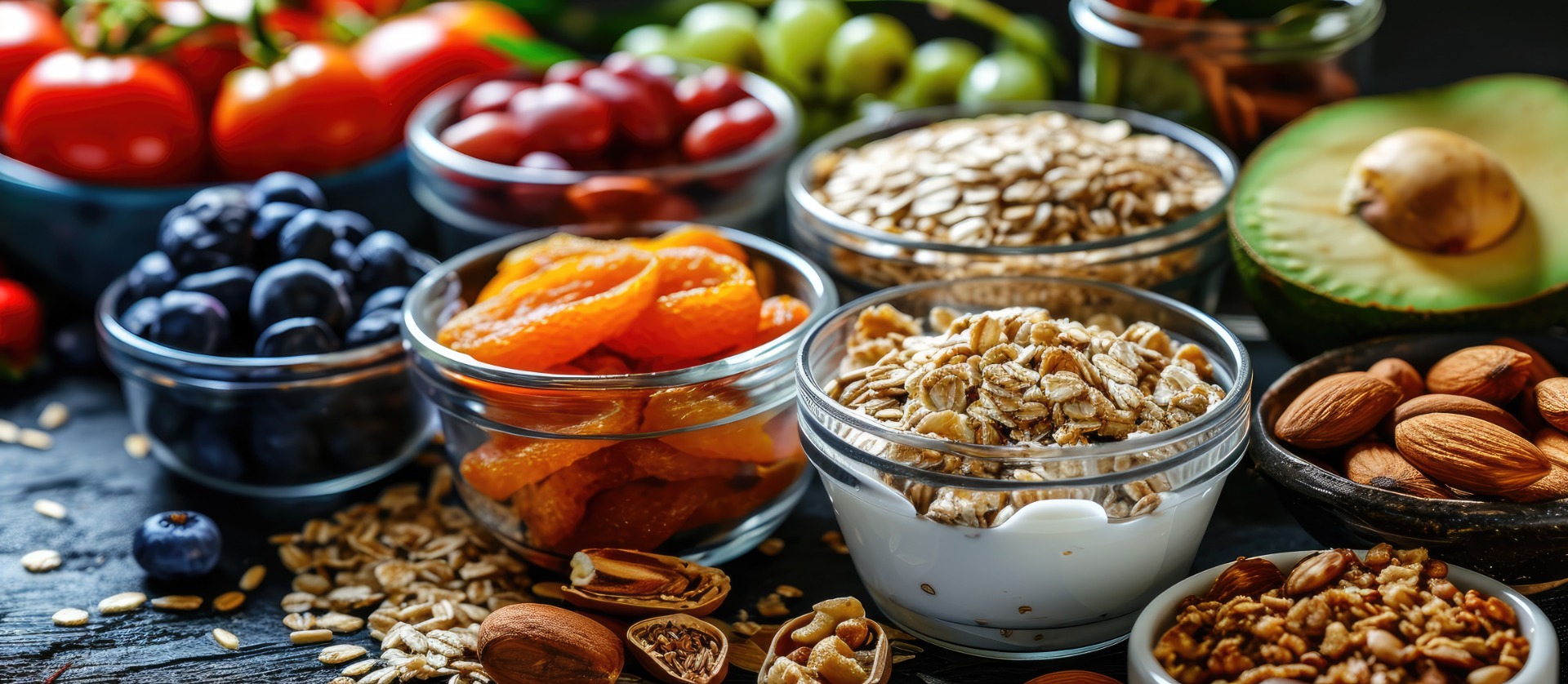

Photo Credit: "© [AkuAku] / Adobe Stock
The average adult needs 30 grams of fibre daily, and many of the population aren’t getting enough. Fibre is critical for a healthy gut, which helps break down food into energy, eliminate toxins and bind stools to pass waste safely. You can get the benefit of two-in-one and top up your body with collagen and fibre when you eat plant-based foods.
Abundant in Antioxidants
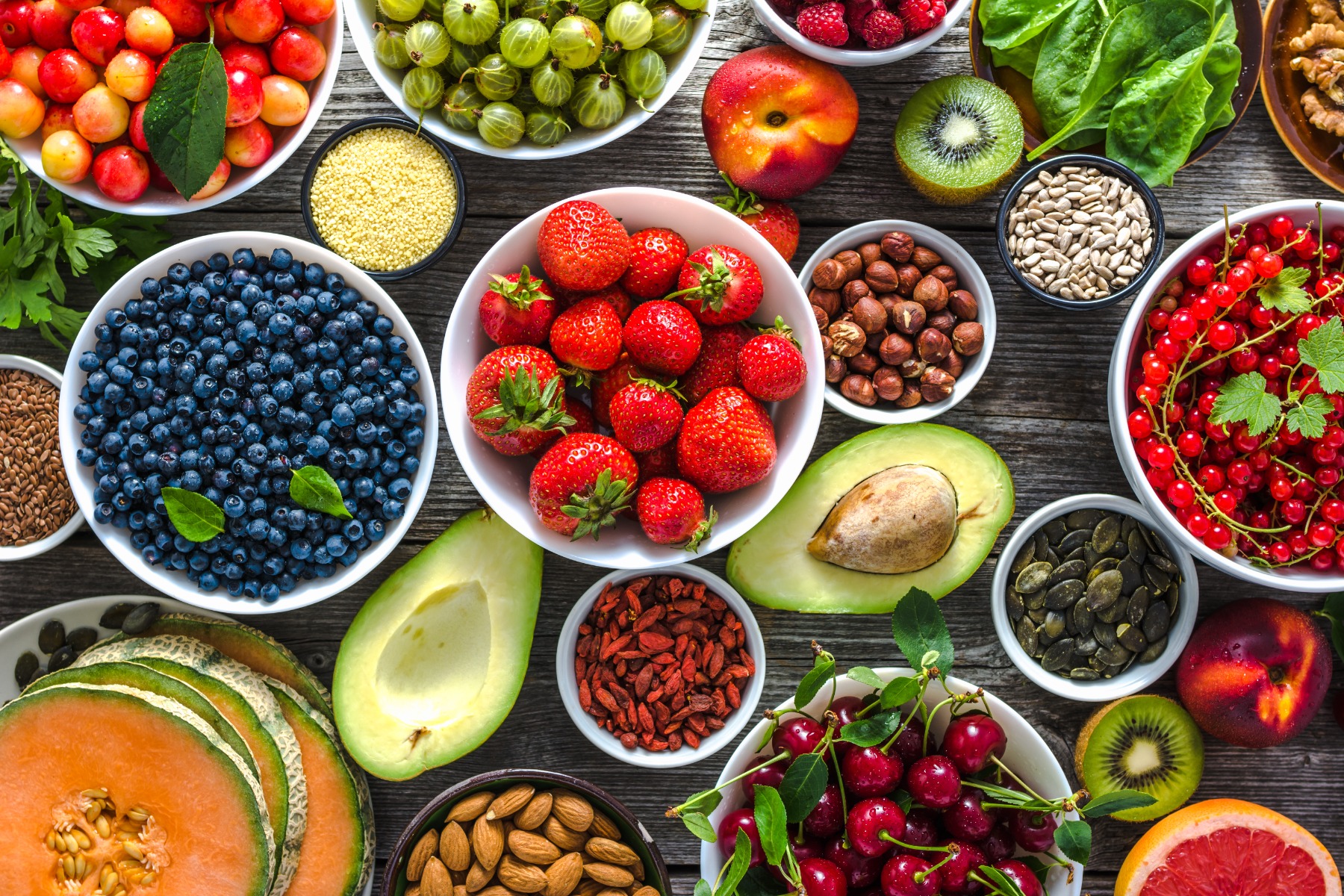

Photo Credit: "© [alicja neumiler] / Adobe Stock
Antioxidants protect your body against environmental stress, typically caused by UV damage, processed food and age. The damage causes cells to break down (including collagen cells) and mutate, leading to illness and some types of cancer.
Collagen-rich plants are often bursting with anti-oxidants to shield you from oxidative stress. So, eating vegan collagen foods helps your body produce more collagen and defend the supply you already have.
Vegan Sources of Collagen
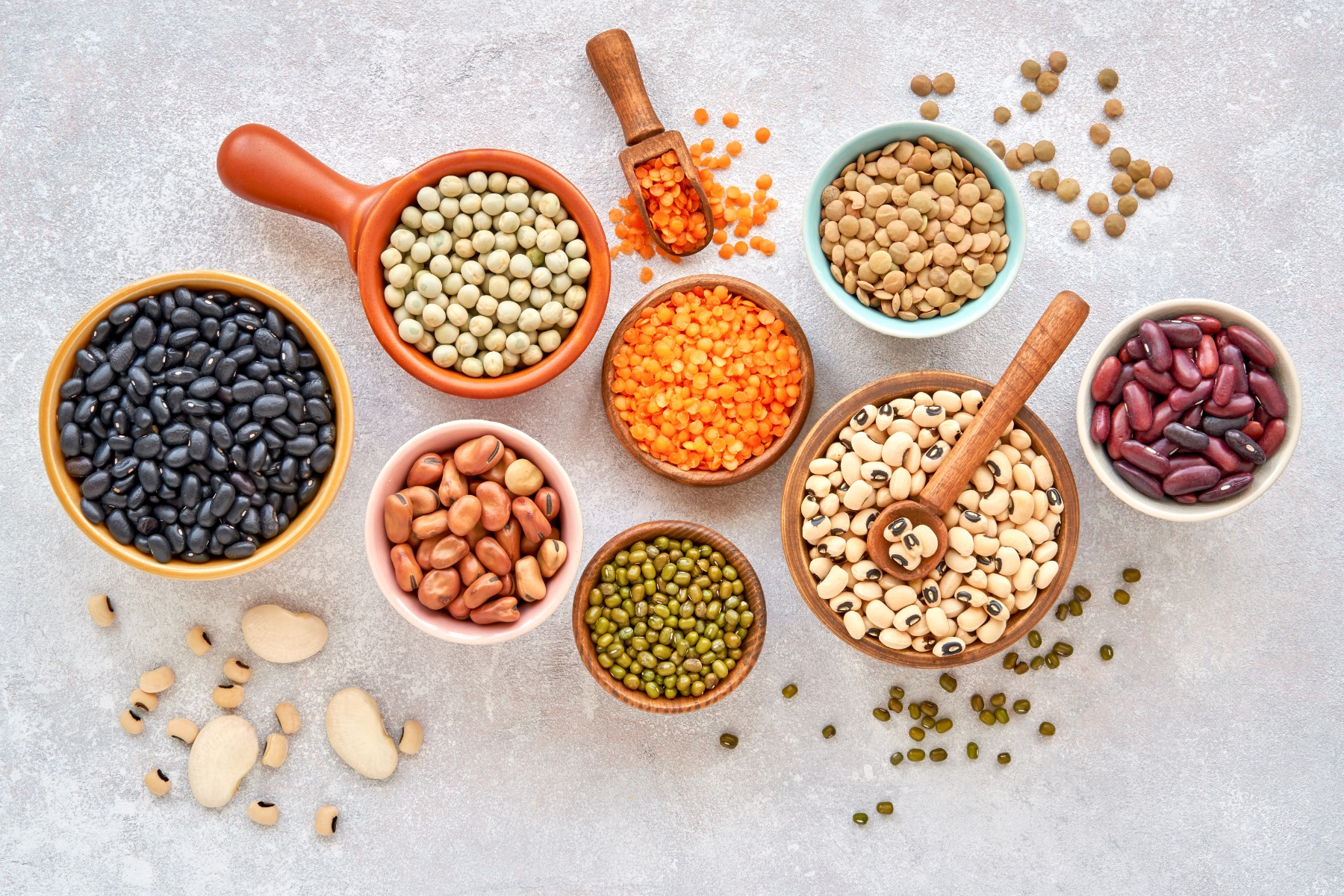

Photo Credit: "© [Veliavik] / Adobe Stock
Adding the below plant-based vegan collagen supplements and foods will increase your natural collagen production.
- Nuts and seeds - Sprinkle nuts and seeds over your breakfast to get a dose of collagen. Walnuts contain all nine essential amino acids, perfect for building collagen cells.
- Pulses, beans and lentils - Kidney, edamame, baked… split peas, lentils, chickpeas…there are plenty of pulses, beans, and lentils that contribute towards vegan collagen production.
- Soy products - Soy is another type of bean that is particularly beneficial for boosting collagen levels. Try organic tempeh and get the bonus of extra fibre and probiotics
- Vegetables - Vegetable collagen is one of the most accessible types of vegan collagen. Eat bell peppers and dark leafy greens like spinach, kale and broccoli to up your intake.
- Fruit - Many fruits are rich in vitamin C, one of the crucial vitamins for collagen production. We have a vast array of dried fruit to eat as collagen snacks.
- Vegan collagen supplements - If you’re struggling to get enough collagen or want a bit extra, opt for vegan collagen tablets. We also have liquid vegan collagen, and both are vegetarian collagen supplements too.
- Vegan collagen protein powder - The British Hemp Co’s Protein Powder is made from hemp seeds packed with amino acids, making it the ideal collagen powder.
Get Plenty of Vegan Collagen With Grape Tree


With a bit of knowledge and adding the right foods to your diet, plant-based collagen is simple to come by. Make a salad garnished with nuts and seeds, swap meat for tempeh, and snack on dried fruit. Or take vegan collagen tablets for vegan sources of collagen. Don’t wait and boost your vegan collagen with Grape Tree.
